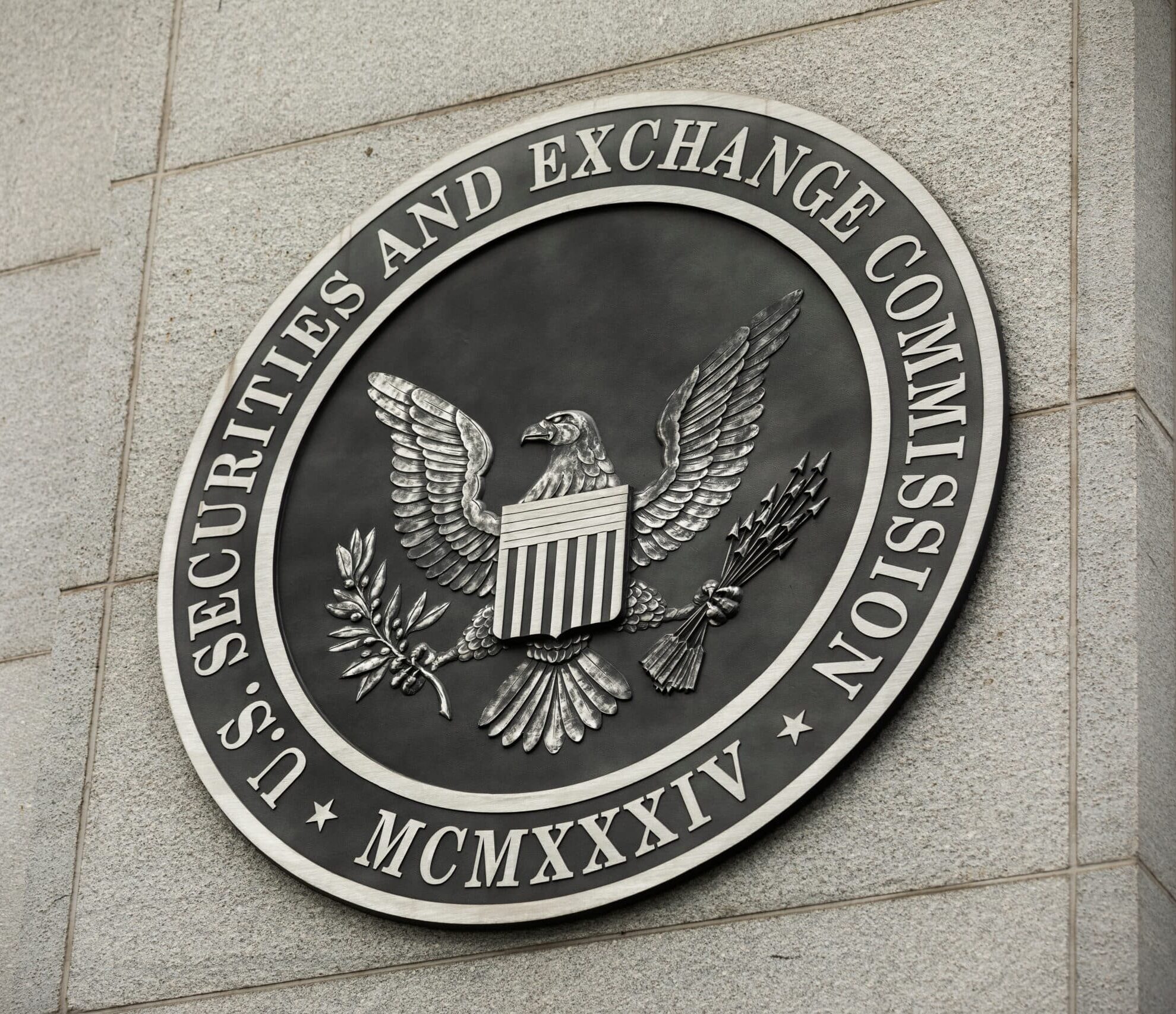
Posted March 26, 2024 at 6:35 pm EST.
After a series of embarrassing missteps in the courtroom, the US Securities and Exchange Commission (SEC) is in dire need of a win in its ongoing enforcement actions against the crypto industry. It is now asking a federal court to impose almost $2 billion in penalties and disgorgements on Ripple Labs for the unregulated sales of XRP tokens to institutional investors in order “to deter Ripple and others from additional violations.”
The motion comes nine months after a US District court found that, while XRP bought and sold by retail investors on third-party exchanges might not necessarily be considered an investment contract, such sales to institutional investors undoubtedly did.
The SEC, alleging that Ripple continued to sell billions of dollars in unregistered XRP tokens to institutional investors despite clear warnings that they may be in violation of securities laws, is likewise demanding full disgorgement and penalties on all of those sales, and while the full amount the SEC alleges Ripple made from such sales is redacted, they are not shy in asking the court for $876,308,712 in disgorgement, $198,150,940 in prejudgment interest, and an additional $876,308,712 in civil penalties— a grand total of $1,950,768,364 that the SEC insists that Ripple is “well-positioned to pay.”
Whether the SEC can get such a fine imposed, however, is far from settled. Ripple CEO Brad Garlinghouse wrote on X that there was “no precedent” for the requested penalty and that Ripple would “continue to expose the SEC for what they are when we respond to this.” Ripple’s Chief Legal Officer Stuart Alderoty wrote in an X post that the company would file its response in April.
Bluster notwithstanding, the SEC may desperately need such a high-profile victory to follow on the heels of some notable recent setbacks. As its cases against such giants as Coinbase and Binance press on, others, including its cases against Ripple, Grayscale, and DEBT Box, offer insight into the effectiveness of the Commission’s methods when challenged in court.
Read more: SEC Investigating Ethereum Foundation Regarding Proof-of-Stake Transition: Report
SEC v. Ripple: A Murky Victory
In a ruling that reverberated through the crypto world last July, U.S. District Judge Analisa Torres issued a nuanced ruling in the high-profile case of SEC v. Ripple. The court found that while XRP sold through exchanges via trading algorithms did not constitute investment contracts, institutional sales of XRP were deemed unregistered securities offerings.
This ruling and the SEC’s aggressive pursuit of penalties underscored the uncertain terrain of crypto regulation, particularly regarding secondary market transactions. The legal battles between the SEC and major players in the crypto industry, including Ripple and Terraform Labs, have centered around a critical question: When do crypto transactions on secondary markets fall under the purview of securities regulations?
Read More: The Do Kwon Trial Will Not Give Us Clarity on When Crypto Is a Security
Judges Torres’ ruling on the matter, however, is not the final word. Judge Jed Rakoff, currently presiding over the SEC’s case against Terraform Labs, offered differing views on this matter. While Judge Torres distinguished between direct institutional sales and indirect sales through exchanges, suggesting that the latter might not always constitute securities transactions, Judge Rakoff rejected this distinction. In Terraform’s case, he treated both direct and indirect sales as securities transactions, challenging the notion that the manner of sale could exempt a transaction from securities laws.
These contrasting opinions reveal the nuanced and evolving judicial stance on cryptocurrency regulation. However, the apparently contradictory opinions are not unusual, or even undesirable, as the indirect “communication” between judges as they respond to each other’s rulings is a critical component of U.S. case law. Commercial litigator Robert Schwinger noted as much, writing that “these cases, like Terraform and Ripple, illustrate the commonplace reality of how the dialogue of the judiciary is conducted en route to the eventual development of a judicial consensus.”
SEC v. Grayscale: A Procedural Black Eye
If the Ripple ruling demanded a little spin by the crypto industry to present it as a total victory, the courts’ decision in SEC v. Grayscale required no such framing. In a closely watched case that unfolded against the backdrop of an increasingly scrutinized regulatory landscape for cryptocurrencies, Grayscale secured a landmark victory over the SEC when an appellate court ruled that the SEC’s denial of Grayscale’s bid to convert its Grayscale bitcoin Trust (GBTC) into a bitcoin exchange-traded fund (ETF) was “arbitrary and capricious.”
The decision, handed down by Circuit Judge Neomi Rao in August 2023, compelled the SEC to reconsider its prior rejection of Grayscale’s proposal. Judge Rao critiqued the SEC’s inconsistency, drawing attention to the agency’s approval of two bitcoin futures ETFs for trading on national exchanges while denying Grayscale’s analogous product. The court found that the SEC had inadequately justified its different treatment of what were essentially comparable products, putting the SEC’s decision-making process under the microscope.
Furthermore, this legal victory and the subsequent discussions between the SEC and industry stakeholders regarding the regulatory stipulations for bitcoin-related products suggest a gradual transition towards more refined regulatory oversight. Despite ongoing debates over the classification of various cryptocurrency products as securities, the SEC’s engagement with industry representatives post-ruling hints at a recognition of the need for regulatory frameworks that both safeguard investors and encourage innovation.
The Grayscale lawsuit emerged as a pivotal moment not just for the cryptocurrency industry’s quest for broader acceptance but also for the evolution of regulatory practices. The decision effectively cleared a path for the approval of spot bitcoin ETFs by establishing that the SEC cannot arbitrarily dismiss such applications. This ruling prompted a series of high-level discussions between the SEC and key industry stakeholders, including direct engagements with the commissioner’s office, focusing on critical operational standards such as custody arrangements and surveillance sharing agreements necessary for bitcoin’s integration into Wall Street.
Despite bitcoin’s market vulnerabilities, such as susceptibility to fraud and manipulation, this dialogue has helped establish it as the most-scrutinized crypto market in the world—a fact acknowledged, perhaps reluctantly, by Sens. Jack Reed and Laphonza Butler in a recent letter asking the Commission to refrain from approving any crypto ETP’s beyond bitcoin. Ironically — and whether he likes it or not — Gensler’s SEC will be remembered as the one that gave the greenlight to trade bitcoin on Wall Street.
SEC v. DEBT Box: An Absolute Disaster
If the previous cases were mixed bags, the most recent setback was a disaster for the SEC. In its case against Digital Licensing Inc.—known in the crypto business as DEBT Box—the Securities and Exchange Commission (SEC) was sanctioned by a U.S. federal judge for what was termed a “gross abuse” of power in introducing misleading or uncorroborated evidence at critical junctures in the proceedings.
Read more: SEC Sanctioned for ‘Abuse of Power’ in Debt Box Lawsuit
Judge Shelby’s decision to sanction the SEC, mandating it to cover DEBT Box’s legal expenses, was a direct response to what he identified as misleading representations by the regulator regarding DEBT Box’s intentions and the state of its assets. Notably, the SEC’s assertions of imminent irreparable harm based on uncorroborated accounts that the defendants had closed several bank accounts, which were critical to justifying the issuance of a temporary restraining order, were found to lack substantive evidence, thereby undermining the Commission’s case and leading to the dissolution of the previously granted restraining order.
The DEBT Box debacle not only exposes procedural missteps and potential overreach by the SEC but also signifies a broader call for a more nuanced and evidence-based approach to regulation in the rapidly evolving digital asset space. As the SEC navigates these complex regulatory waters, the outcome of this case underscores the necessity for clarity, fairness, and due diligence in its enforcement actions.
Is the SEC Playing Politics?
Despite the impersonal nature of the federal bureaucracy, political appointees still have to carry their track records with them elsewhere in their careers. This always carries with it the risk of the agency, like so many other institutions, falling prey to the hyper-politicized rhetoric and partisan shouting matches that have become all too common.
So it’s understandable that Gensler would want to push for a big win in the Ripple case; a decisive victory could be seen not only as a regulatory win but as a strategic move within a broader political and professional landscape. The SEC’s aggressive pursuit of Ripple signifies more than just a crackdown on unregulated crypto sales; it is a bid to reaffirm the agency’s strength and resolve in the face of recent setbacks.
These setbacks, from court losses to critiques of overreach, underscore a period of challenge for the SEC, one that has tested its methodologies and questioned its efficacy in navigating the complex and rapidly evolving digital asset space.







